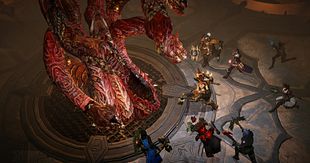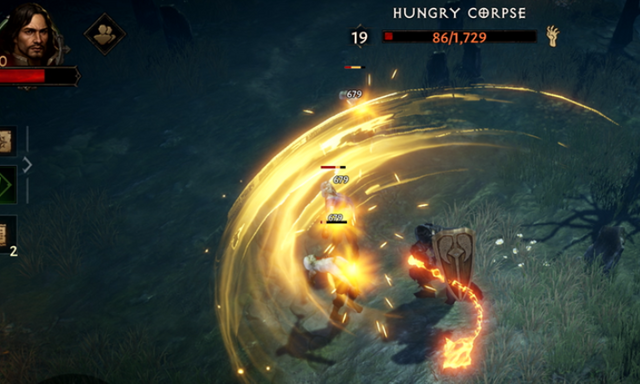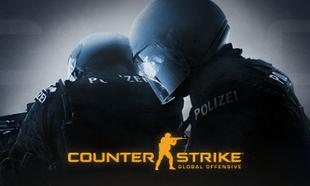The ‘Diablo’ franchise has been a favourite of hack-and-slash fans since the original game debuted in 1997, but the actions of Blizzard Entertainment over the last week is tantamount to cultural destruction.
The reveal of ‘Diablo Immortal’ was rightfully laughed out of the room, and even then, the signs were clear – Blizzard were taking a beloved IP with name recognition and betting that gamers would be more than happy to hand over their hard-earned money to progress in the game.
'Diablo' has always been a franchise that knew it had a fanbase that would buy whatever was offered to them - it's been 10 years since the infamous launch of 'Diablo 3', after all - but the events of the last week should be a line in the sand on the franchise, and free-to-play games in general.
Research from Youtuber Bellular News has revealed that it could cost players around $110,000 to fully gear up and max out your character in the game.
The video itself has become outdated in the time since publication, with a post on the games Reddit forum now indicating it will cost players a mere $50000 to $80000 to max out a particular stat, but the last time we checked the average gamer doesn't have that kind of money kicking around.
Players can happily play the game up until a certain point, but if you want an edge in PVP combat or seriously tackle endgame content, you have to pony up.
In the thinly-disguised gambling den known as 'Diablo Immortal', the point of contention lies in the crest system.
Other games have different names for in-game currency, but for all intents and purposes, the currency here is called Eternal Orbs.
Crests allow you to earn bonuses for running Rifts challenges, which allow players to progress further.
To actually make Rifts challenges worthwhile, players must invest in crests, and this is where 'Diablo Immortal' shows its true colours.
Of course, if you progress that far into a game or want to be the best at the game, your brain is conditioned to want to finish it, and that is when ‘Diablo Immortal’ pulls the “have you considered paying to advance” card.
A basic concept taught in Leaving Cert economics is the "sunk cost fallacy" and that is in full effect here.
In this instance, players will have spent so many hours trying to get their character to proceed so far into the game that they don't want to give up just because they hit a paywall.
The game also allows players to buy "Legendary Gems".
The gems serve as one of the characters' three progression pillars alongside regular gear and XP level, and they dictate endgame-tier progression.
At time of writing, free-to-play players cannot earn top-rated Legendary Gems, which are only available via some of the game's monetisation mechanics, and fully maxing out a character effectively costs $50,000 in the game's current economy.
At once, the game is subtle but blunt in its psychological trickery.
You do not need to be Conor Pope or Ralph Nader to know this is an egregious breach of consumers' trust.
Defenders of the game will pull the “what did you expect from a free game” card, but it is a matter of principle.
It would be one thing if this was a full-priced retail game and they pulled the same trick, but it's the assertations from Blizzard that players can play the game without having to pay that rubs salt in the wound.

Gamers writ large have accepted that developers can and will put these mechanics in their games, and this attitude necessitates a sea change in gamers' habits.
Other reviewers, such as IGN, have noted that they have played the game for 20 hours without encountering the need to spend money, and praising Blizzard for not immediately taking their mask off should not be commended.
Game developers, especially those at the level of Blizzard, should not be praised for doing the absolute bare minimum to provide a good experience for consumers, and certainly should not be charging a house deposit to allow players to access all of the game's content.
The developers were blue in the face pre-launch telling us that you can still play ‘Diablo Immortal’ without paying a cent, which is now hilariously quaint.
It is now clear as day that Blizzard hoped to get away with it, but the jig is finally up on the great loot box debacle.
Blizzard knew exactly what they were doing when they tried to make a new ‘Diablo’ game free-to-play on mobile, and that is a telling indication as to where gaming is at in 2022.
Imagine if you played ‘Ocarina of Time’ back in 1998 and just before you got to Phantom Ganon, Link’s energy or weapon suddenly depleted and you got a screen saying you could spend real money to restore that.
The actual game itself is rock-solid, classic ‘Diablo’, but putting in this roadblock just when the game is getting good, it pulls the trap door on players.
The introduction of pay-to-win mechanics and loot boxes will go down in the history of gaming as a tragic mistake on a par with introducing the Cane Toad frog to the Australian environment.
Big developers such as Rockstar and Blizzard have cashed in goodwill and widespread fan support in exchange for bumping up the bottom line, and ‘Diablo Immortal’ needs to be a line in the sand.
It is idealistic to make 'Diablo Immortal' a referendum on loot boxes in general and imploring gamers to vote with their wallet, but at this stage, the rot has truly set in.
Aggressive government regulation of loot boxes is a good start, and a new rule of thumb is if a game is banned in Belgium or The Netherlands for violating loot box regulations, stay well away.
Just last week, consumer groups from 18 different European nations backed a Norwegian government report that called for more aggressive regulation of loot box or in-game purchase mechanics, and this is a good start.
Pressure needs to be kept on the likes of Blizzard, and a message needs to be sent to them: we will not tolerate this.
The sad part of this whole affair is this adds a stigma to mobile gaming.
Mobile game development is already hard enough, having to fight off accusations of “pay-to-win” at every turn, so while the vast majority of good games by honest developers treat their audience with respect, big developers like Blizzard undo all that progress by pulling the paywall mechanic.
After the great loot box scandal of 2017, gamers and media alike hoped that developers have learned their lesson and realised that loot box mechanics are as popular as a box of celebrations that are all bounties.
When developers sacrifice artistic intent for the sake of the bottom line, it gives the industry a bad name, and only encourages other developers to carry out the same practices in the name of profit rather than artistic endeavour.
At this stage, the only surprising thing about this particular incident is how quickly people started to see through Blizzard's facade.









































































